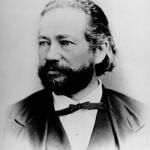
Kenneth Craycraft’s analysis over at First Things of the likely-to-be-passed Equality Act paints a grim if (probably) accurate picture of the next four years (and beyond). The new president’s record-setting executive order spree in the first few weeks in office is cause for concern as to both form and content of governance, effectively sweeping away the few laudable gains made by Christian conservatives in the preceding term–though conservatives can learn some political lessons therefrom. One of these orders in particular telegraphs a disheartening trajectory on sexuality, et al.; another, Biden’s unwitting acquiescence to wokeism and the logic of “equity.” (Doubtless, all of this and more is, perhaps, worse than it could have been; the rather belligerent past four years were an affront to “normalcy,” and whether you loved the abnormal or not, the next president was always going to be of the opposition party and was always going to return us to a new normalcy, which is to say, a retributive “great reset.”) If the 46th American regime cannot be fairly called hostile to Christian conservatives, it will certainly be increasingly unfavorable to their interests and preferences.
But concern is not despair; worry is not hysteria. These are justified emotions, especially after the roller coaster election cycle and its chaotic aftermath we just witnessed, but should not induce idleness, but rather awaken prudence–it has been asleep in conservative Christian circles for a long time.
Classically, prudence is the first of virtues and, as Neils Hemmingsen (1513-1600) held, “required by the law of nature,” because “nothing can be done correctly without it.” “Prudence… is the knowledge of good things, evil things, and things that are both good and evil.” It is practical wisdom and opposed to ignorance.
Borrowing from Cicero, Hemmingsen discerns three parts of prudence, viz., memory, understanding, and foresight. “[T]he experience of many things is required for deliberating prudently, and one cannot have this without the memory of things past.” This is, more or less, the case for what is now called applied history. Since individual experience is limited, the collective experience of many individuals can be gleaned from the record thereof, the amassed wisdom of the past–and in this Edmund Burke concurred. The memory is the storehouse of these lessons, and the understanding or perception makes informed judgments accordingly. Foresight draws upon the prior two elements.
“It is the duty of foresight to ponder and form a judgment about future things from things past and present, and to fortify the mind in advance with early planning, before a person arrives at the reality of the future.” In this way, foresight is akin to diligence, says Hemmingsen. It is painstaking “deliberation concerning the end and concerning the means, and a sort of exertion of the will and constancy in maintaining the means.” Demosthenes chimed in: “For cautious and circumspect men, there is nothing so terrible that it cannot be guarded against beforehand, nor anything evil that cannot happen o the incautious and he sluggish.” With Proverbs 6:6-9 in mind, the ant is the picture of diligence and also, therefore, of foresight.
Its hard for us to be the ant, otherwise Solomon wouldn’t have to chastise us so. We are lazy, lacking in memory (Ex. 32:8-9), understanding (Rom. 3:11), and foresight (Prov. 13:16). In both church and state, more often than not, we Christians fiddle away our time, forget everything, and understanding nothing.
More to the point, and speaking of Solomon, the latter text from the philosopher king, Ecclesiastes, upon close examination, offers less chastisement and more prudence and strategy for the position American Christians presently find themselves in. As wisdom (or prudent) literature, Ecclesiastes is good for every season. But, in particular, Ecclesiastes 10–which mimics Proverbs more than the rest of the book in which it appears–is relevant here, and was, in part, the subject of my pastor’s sermon last week. My custom is to dwell on the passage for the duration of the subsequent week, usually perusing the commentaries of Matthew Henry (and sometimes John Calvin). Henry’s comments compliment well the unrivaled insights of Solomon, especially in this chapter–and they provide signposts for Christians living amidst political dynamics like ours.
It is Ecclesiastes 10:4-11 that interests us in this regard.
On v. 4, If the spirit of the ruler rise up against thee, leave not thy place, Henry instructs the Christian to “forget not the duty of a subject, revolt not from they allegiance, do not, in a passion, quit thy post in [the ruler’s] service and throw up thy commission, as despairing ever to regain his favour [sic]. No, wait awhile, and thou wilt find he is not implacable, by that yielding pacifies great offences.”
Of course, the Capitol Hill riots from earlier this month spring to mind upon reading these comments. It was a gross, senseless, ill-conceived, and unpatriotic demonstration, to be sure; even if it did not rise to the level of a credible “insurrection,” the whole affair would have been rightly called seditious by the founding generation–maybe even “terrorism” in John Adams’ book. (If you are wondering what our theological forbears would have thought, take a gander at Martin Luther’s Against the Rioting Peasants (1525).)
In any case, this is not the end of the application of v. 4. Not only should Christians not “commence a quarrel with their prince, though he public administration be not in every thing as they would have it.” This outcome is to be frequently expected and was much endured by saints in the past. (Favorable rulers are generally the exception.) Yet, Henry, channeling Solomon, commands Christians to “leave not thy place, forget not the duty of a subject.” That is, we are to hold fast and in so doing, fulfill our duties, such as they are, and thereby hope to regain favor with the ruler whose affections are presently turned against us–more to say on that in a bit.
Lest Henry be misread, he has in mind here not mere indifference but real tyrannical folly, wherein rulers, “consult[ ] their personal affections more than the public interests,” turning the whole world upside down, a disordered mess (v. 7 should recall, to some extent, Romans 1). A tyrannical, topsy-turvy regime is marked by “vicious men” advancing and “men or worth” being kept “under hatches.” Even then, rebellion is never warranted.
“But [even if] the prince be guilty of his error, yet let not subjects leave their place, nor rise up against the government, nor form any project for the alteration of it; nor let the prince carry on the humour too far, nor set such servants, such beggars, on horseback [i.e., v. 7], as will ride furiously over the ancient land-marks of the constitution, and threaten the subversion of it.”
Wanton disregard of established limitations on both government and populace, as well as erratic efforts to change it, will return void or disastrous. This is the lesson of vv. 8-9, lessons for both ruler and ruled.
“Let neither prince nor people violently attempt any changes, nor make a forcible entry upon a national settlement, for they will both find it of dangerous consequence which [Solomon] shows here by four similitudes, the scope of which is to give us a caution not to meddle to our own hurt. Let not princes invade the rights and liberties of their subjects; let not subjects mutiny and rebel against their princes… If princes become tyrants or subjects become rebels, all histories will tell both what is likely to be their fate and that it is at their utmost peril, and it were better for both to be content within their own bounds. Whoso breaks a hedge, and old hedge, that has long been a land-mark, let him expect that a serpent, or adder, such as harbour in rotten hedges, will bite him… God, by his ordinance, as by a hedge, has inclosed [sic] the prerogatives and powers of princes; their persons are under this special protection; those therefore that form any treasonable designs against their peace, their crown, and dignity, are but twisting halters for themselves
Whoso removes stone, to pull down a wall, or building, does but pluck them upon himself; he shall be hurt therewith, and will wish that he had let them alone. Those that go about to alter a well-modelled well-settled government under colour [sic] of redressing some grievances and correcting some faults in it, will quickly perceive not only that it is easier to find fault than to mend, to demolish that which is good than to build up that which is better, but that they thrust their own fingers into he fire and overwhelm themselves in the ruin they occasion.”
Henry locates a better way forward for Christians under an unfavorable government. But it is not lost on Henry, as demonstrated already above, that duties between governor and subject are, in some respects, reciprocal:
“Rather let both prince and people act towards each other with prudence, mildness, and good temper: Wisdom is profitable to direct the ruler how to manage a people that are inclined to be turbulent, so as neither, on the one hand, by a supine negligence to embolden and encourage them, nor, on the other hand, by rigour [sic] and severity to exasperate and provoke them to any seditious practices.”
This advice is pertinent to any American presidency, but especially this one, the alleged president of unity. True unity, social cohesion, and tranquility can come only through studious adherence to the wisdom above. Henry’s comments on vv. 8-9 echoes Isaiah 49:23, oft cited by seventeenth and eighteenth century protestants. Kings are to be as nursing fathers to their people, and especially to the church, but that is another discussion. As nursing fathers, kings should not provoke their children (Eph. 6:4), but neither are they to spare the rod when appropriate (Prov. 13:24), unless they hate their children.
Turning back to the “children,” Henry says,
“It is likewise profitable to direct the subject how to act towards a prince that is inclined to bear hard upon them, so as not to alienate his affections from them, but to win upon him by humble remonstrances (not insolent demands, such as the people made upon Rehoboam), by patient submissions and peaceable expedients… Let wisdom direct to gentle methods and forbear violent ones.”
Here, on the one hand, is an air of Tertullian’s Apology. Christians are to make the case, in word and deed, that they are good subjects, peaceable citizens; that Christianity is conducive to stability. But there is more to the strategy which Henry draws from vv. 10-11.
“We might save ourselves a great deal of labour, and prevent a great deal of danger, if we did whet before we cut, that is, consider and premeditate what is fit to be said and done in every difficult case, that we may accommodate ourselves to it and may do our work smoothly.”
Politics is the art of the possible, as they say. Henry is instructing us to be clever and deliberate; to be prudent. This does not entail working deceitfully (Ps. 42:2), “but to work cleanly and cleverly,” to not attack a knotty tree with a dull axe.
“Wisdom will teach us to enchant the serpent we are to contend with, rather than think to out-hiss it.” As subjects, we cannot “out-talk him” by “dint of words.” We cannot match him blow for blow. That way leads mutual destruction to the detriment of the common good. What Christians under the heel of an unfavorable ruler can do is “by prudent management to enchant him.” It is “dangerous dealing with him as with a serpent uncharmed; but if you use the enchantment of a mild and humble submission, you may be safe and out of danger; herein wisdom, the meekness of wisdom, is profitable to direct. By long forbearing is a prince persuaded.” Christ himself was both meek and clever as he confounded the superficial cunning of the Pharisees.
The example of Mordecai and Esther also immediately springs to mind. For the first four chapters we see the pair working in tandem to serve the king faithfully, slowly ingratiating themselves to him, yet never proving willing to violate the law of God nor forsake the interests of their own people, all the while protecting the true interests of the king himself. Then, in the latter chapters, Esther capitalizes off of the favor she has generated with the king, prudently maneuvering to expose Haman as the self-serving scoundrel as he was and save the Israelites in the process. The work was subtle and arduous, no doubt nerve-racking at times, but it honored both God and country, and the serpent was, once charmed, amenable to Esther’s cause.
What Henry recommends via Solomon is not far off from Adrian Vermeule’s theory of “integration from within.” He too lists Esther as a prime example of this “Christian strategy,” for at all times her ultimate concern was the health and safety of her people, Israel; the ancillary and intermediate interest was that of the state in which they were imbedded.
If Christians want to make any gains in the coming presidential term, they would do well to follow Esther’s example and take Solomon’s advice. This cannot be done through obstinate resistance and babbling protestation. But neither will it be accomplished by throwing the church under the bus because of the recent excesses of certain, more extreme and theologically suspect quadrants of American evangelicalism. Self-deprecating virtue signals and feigned, self-flagellating apologies will get us nowhere but under the bus too. (Those who decry “Christian Nationalism!” exhibit little concern for the interests of either church or nation.) It is not time to throw out the whole playbook either, but simply to make prudential adjustments to the new normal–ride the reset!–capitalizing off of past gains and maneuvering present challenges with dexterity, looking again to future goals. If the regime is hostile, we must be all the more agile. Christians, in their politics, often lack–perhaps more than any other virtue–this prudent but gentle cunning–a serpent can only be charmed by another serpent.
The next four years will be a real test of the stock of wisdom in the church, her adaptability and endurance. Memory, understanding, and foresight suggest that she will flounder in vanity until she drinks deep of the prudence of Ecclesiastes.
Image credit: @mktgmantra/Unsplash












